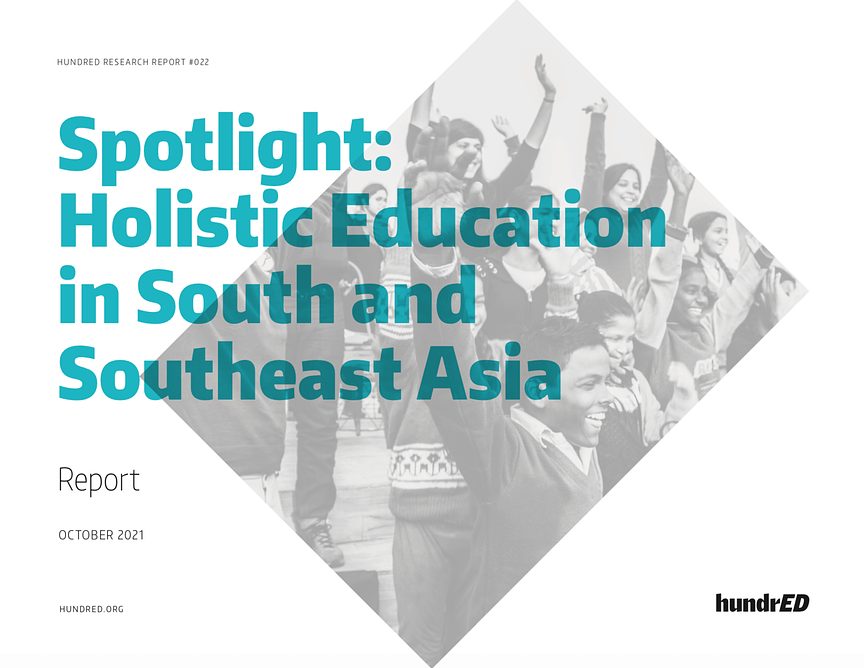Education is a lifelong process where a learner is constantly raising their bar. Life itself is a journey of personal growth and development and therefore the classroom curriculum should reflect the world around us. It should help the learner understand what’s going on around her. Education should be about studying to learn and not learning to study. The role of a teacher is to help a learner understand the process of learning to learn. This takes more precedence now than ever before as we move into a decade that does not resemble anything that we have witnessed in the past. Education, just like us, needs to be holistic – one that is dynamic, responsive, and open to new ideas and change.
HundrED and Druk Gyalpo’s Institute, Bhutan collaborated to identify and show- case innovations in the South and South East Asia region that focuses on holistic education.


